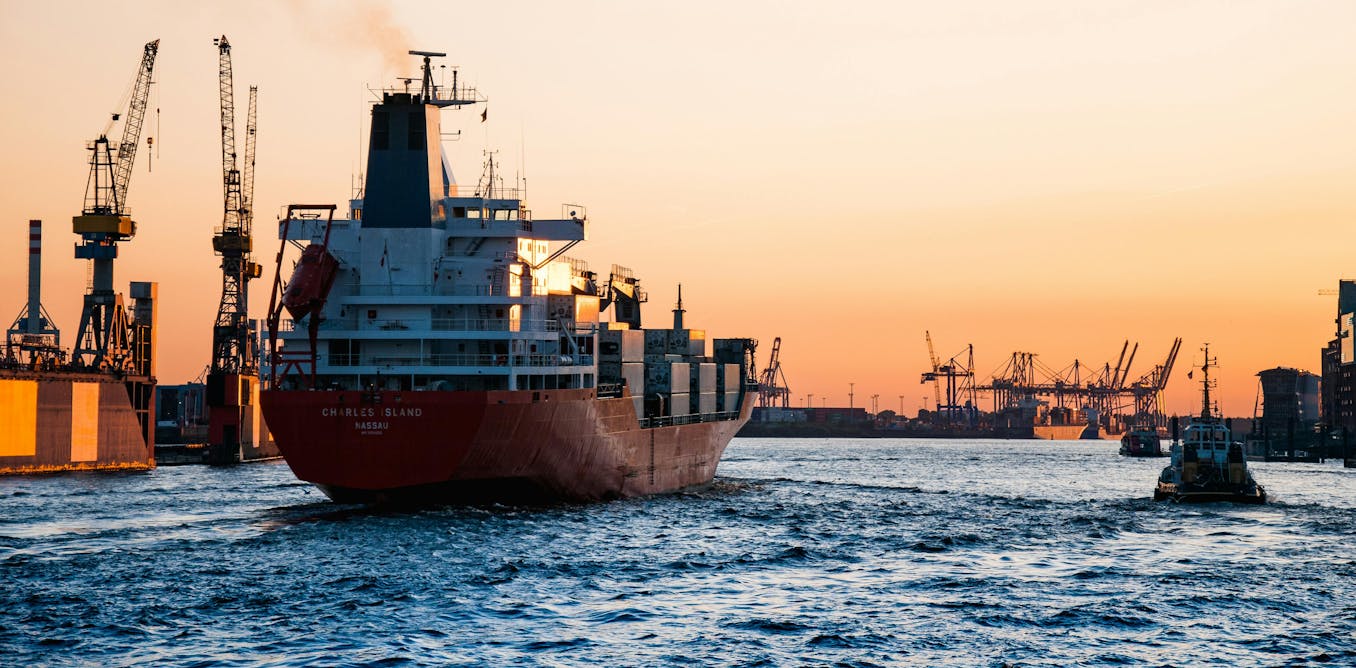There was a time when oil and gas companies happily linked themselves to the idea of planet-wide environmental changes. “Each day Humble supplies enough energy to melt 7 million tons of glacier!” boasts the headline from a 1962 double-page spread in Life magazine for Humble Oil, now part of ExxonMobil.
Fast forward 60 years and that advert takes on a prophetic quality. Millions of people have experienced first-hand the tragic consequences of how burning fossil fuels is overheating our planet beyond recognition. Not just by melting glaciers but fuelling storms, fires and floods.
The fossil fuel industry today would never dream of linking its activities to melting glaciers. Instead, it actively denies responsibility for the consequences of extracting and selling some of the most harmful products ever known to humanity.
For the decades we have known about climate science, this narrative has been core to how the fossil fuel industry maintains its social legitimacy: that the industry is not responsible for climate change, but everyone else is through their individual actions.
Yet a ten-year climate lawsuit brought by a Peruvian farmer and mountain guide has challenged this narrative. In March this year, Saúl Luciano Lliuya’s case against the European coal-giant RWE was heard in a regional court in Germany.
And while the court has now dismissed Lliuya’s specific claim – finding the flood risk to Lliuya’s particular property is not yet sufficiently great – it did confirm that private companies can in principle be held liable for their share in causing climate damages. This finding has major ramifications for the wider legal battle to make fossil fuel companies accountable.
Farmer vs coal giant
Lliuya lives in Huaraz, a city in the foothills of the Peruvian Andes. He and the 120,000 residents of this city live in constant danger. The melting glaciers caused by climate change are causing the water levels in Lake Palcacocha above their home to rise. Peru’s disaster management agency warns that a flood could occur at any moment.
Christian Vinces / shutterstock
For Lliuya, it is not a matter of if but when – and how bad the flood will be.
He therefore embarked on his lawsuit against RWE with this simple premise: as one of the world’s top greenhouse gas emitters, it should help pay for flood defences to protect Hauraz. The total cost of a new dam would have been US$4 million (£3 million), and Lliuya was demanding that RWE pay 0.47% of that total, which is US$20,000.
This proportional amount was based on a calculation of RWE’s contribution to historical global greenhouse gas emissions – most of which have occurred since the 1990s, long after fossil fuel companies were aware their products would cause dangerous climate change.
RWE’s revenues are measured in the tens of billions. It could have accepted Lliuya’s request and paid for not just its share of the cost, but the full cost of flood defences for Huaraz. Yet the company fought tooth and nail to prevent the case getting as far as it did.
When asked by the court much earlier in the process if it would be willing to settle, the company’s lawyers declined, revealing exactly what was at stake: “This is a matter of precedent.”
On May 28 2025, the court ruled that the flood risk to Lliuya’s home was not sufficiently high to uphold his specific claim. However, its confirmation of the principle that private companies can be held liable for climate damage shows that RWE was, in fact, correct to fear the precedent that Lliuya’s case has now helped set.

dpa / Alamy
Liability – across national borders
Despite RWE’s attempts to argue otherwise, the case’s outcome has far-reaching implications that could shape similar cases in countries such as Switzerland and Belgium, and which may be relevant for other jurisdictions including the UK, Netherlands, US and Japan.
Crucially, the case confirms that proportional liability for climate harm is legally possible, even across national borders. And this will still remain a possibility, even if a higher court overrules the German district court in favour of the fossil fuel companies.
Why does this matter so much to RWE and other fossil fuel companies, who argue time and again in court that they should not be held responsible?
For years, fossil fuel companies have operated as if they would not be held responsible for the emissions from their products. But as the world continues to warm, the harmful impacts of climate change and extreme weather will only intensify, resulting in mounting costs – both those we can calculate, such as damage to infrastructure, and those we cannot, like the loss of our loved ones.
With the growing number and accuracy of climate science attribution studies, legal pressure on companies to contribute to climate costs is likely to keep growing.
And when you consider that the legal basis for this “polluter pays” principle exists in a similar form in at least 50 nations around the world, then the scale of liability facing the industry becomes clear.
More examples are already emerging. In 2024, a Belgian farmer filed a lawsuit against French fossil fuel major TotalEnergies, seeking compensation for damage to his farm as a result of extreme weather.
In 2022, four residents of Pari island, Indonesia, started legal proceedings in Switzerland against the Swiss cement firm Holcim. The residents are seeking a 43% reduction in Holcim’s carbon emissions by 2030, and around US$4,000 in compensation each for damages caused by flooding.
Since 2017, dozens of cities, counties and states across the US have sued fossil fuel producers for climate change-related damages and adaptation costs, potentially totalling trillions of dollars – pointing to the industry’s increasingly well-documented historical and ongoing deceptions about climate change.
And policymakers across countries including the US, the Philippines and Pakistan are working to enact laws that would directly hold polluting companies financially responsible for climate damages.
The new ruling in Germany provides a shot in the arm to all these cases, and the future suits yet to be filed. Perhaps most consequentially of all, public opinion is hardening: growing numbers of people understand that the fossil fuel industry is responsible for climate change, and lawsuits to compel big carbon to pay for climate damages enjoy widespread public support.
When Lliuya launched his case nearly a decade ago, the idea of linking an individual corporation to the impacts of its emissions seemed implausible to some. Yet scientific research now makes it possible to link the emissions of individual companies to particular, quantifiable damages caused by climate change.
This, coupled with the German court’s ruling, makes it increasingly clear that the fossil fuel industry’s longstanding deflection of responsibility for planetary warming is doomed to melt away.

The post “One lawsuit just helped melt the fossil fuel industry’s defence against being held accountable for climate change” by Benjamin Franta, Associate Professor of Climate Litigation, University of Oxford was published on 05/30/2025 by theconversation.com



































Leave a Reply